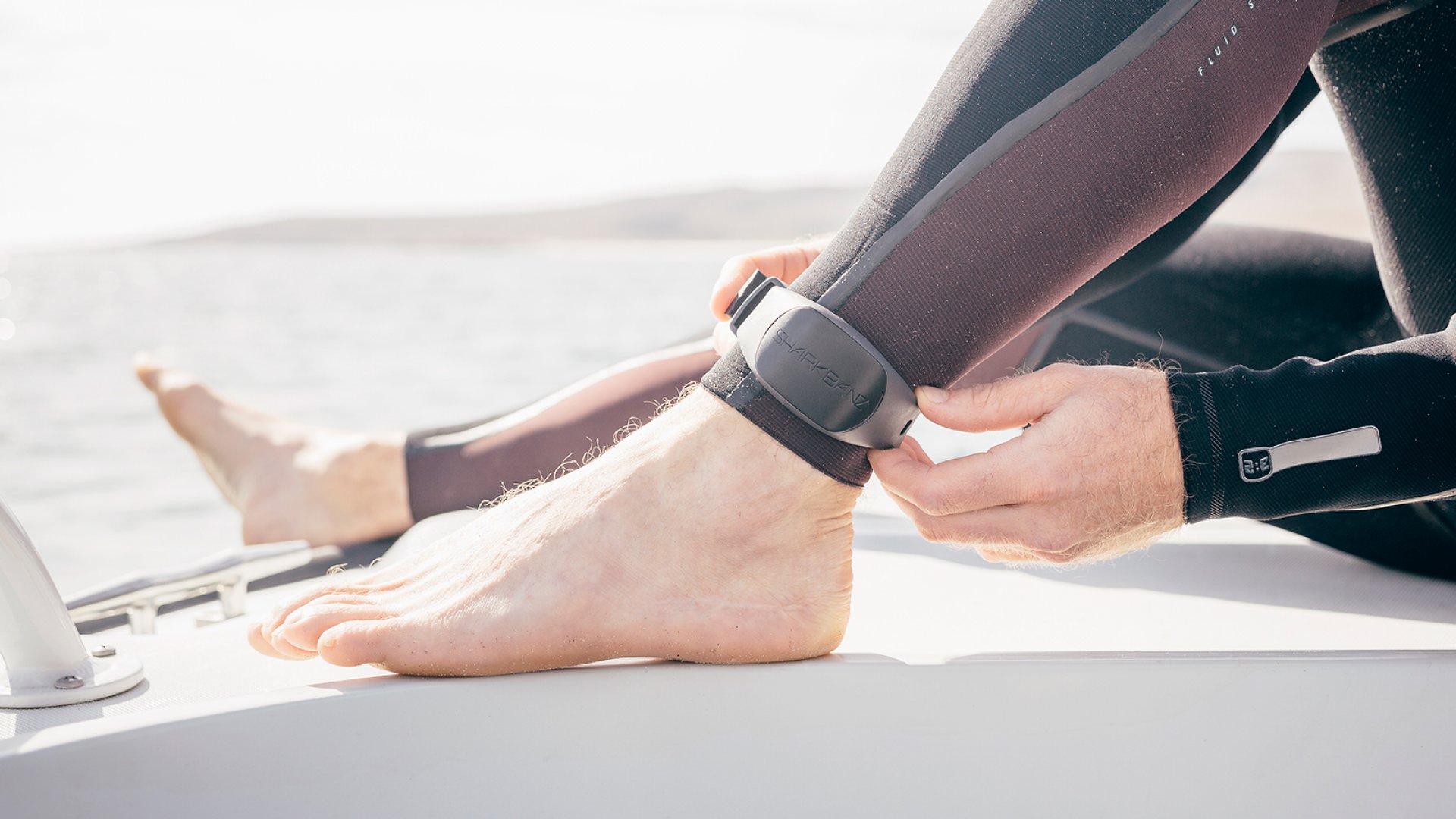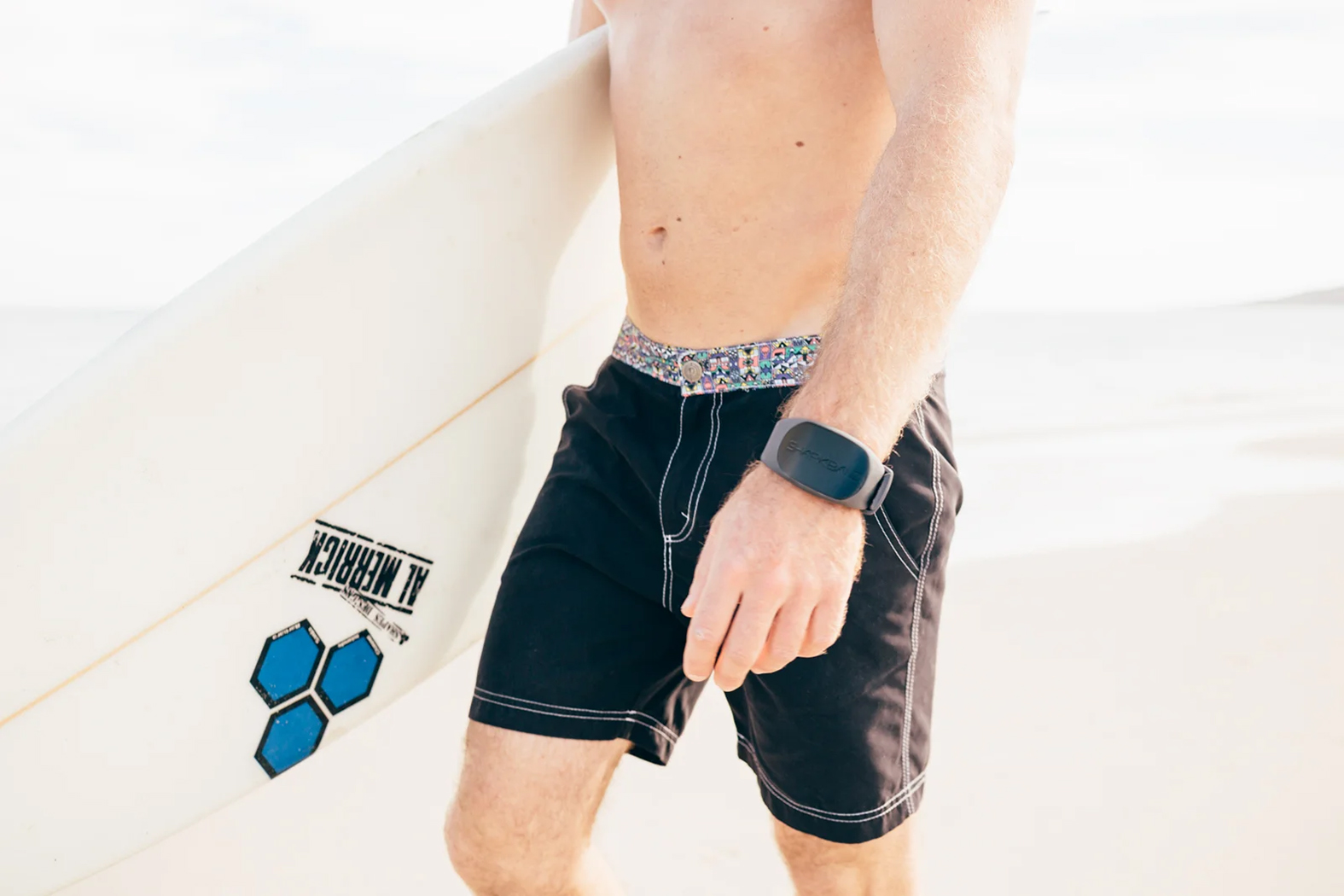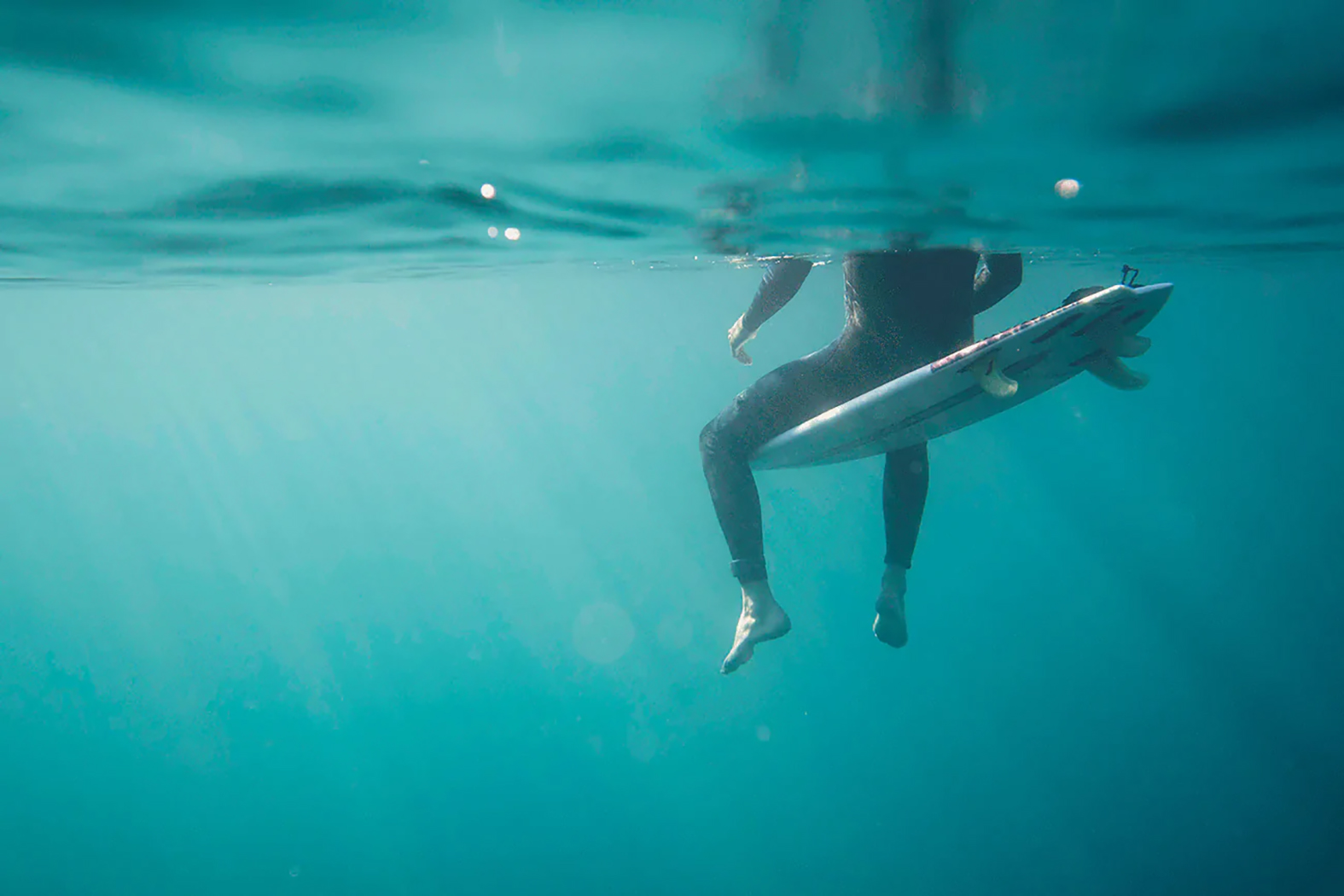Barrier band
Whether for swimming or fishing, Sharkbanz is proving a successful means of keeping people and catch safe from predators.
13 July 2022
Designed for beachgoers, ocean athletes and marine professionals, Sharkbanz use patented magnetic technology developed by marine biologists to deter predatory shark species.
Worn on the wrist or ankle, the device weighs just 85 grams, requires no batteries and no charging and will fit people aged five years and above. It can be used for diving, swimming, surfing and other watersports to 100-metres (330-feet).
Sharkbanz’s patented magnetic technology is the result of long-term scientific research and testing. Sharkbanz utilise powerful permanent magnets to create an effective shark deterrent.
When sharks approach Sharkbanz, they detect the device’s strong electromagnetic field, which provides a sudden sensation that is thousands of times stronger than the signal produced by anything in a shark’s normal food chain.
This tells the shark it is definitely not food. Consequently, sharks are deterred away from Sharkbanz without injury.
“For years, we sat on our surfboards in murky water, wondering what lurked below,” said Nathan Garrison, who co-founded Sharkbanz with his dad, David.
“We dove reefs and swam helplessly next to 10-foot Sand Tiger Sharks, hoping for the best.
“The ocean remains the last frontier on our planet, but we couldn’t believe that in the 21st century, no user-friendly solution existed to help ease our mind and offer protection.
“After a particularly spooky day of nervous laughter and conversations about the weather to avoid the pointy subject, my father and I decided to do something about it.”
After three years of testing, design, development, more testing and close encounters in the field, they released the first version of Sharkbanz in 2015. The current model is Sharkbanz 2, RRP AUD$139.95.
Research conducted in 2017 by Sharkbanz in the US, in collaboration with Discovery Canada and Sharkdefense Technologies, LLC showed the devices deterred wild bull sharks.
The Sharkbanz Fishing model offers anglers the ability to protect their catch.
Sharkbanz Technology has been verified by an independent third-party analysis group at the School of Coastal Environment Department of Marine Science at Coastal Carolina University in the US.
A year-long study conducted by the WA Government (DPIRD) in 2021 also showed this shark deterrent technology was effective at reducing shark depredation in recreational fishing.










